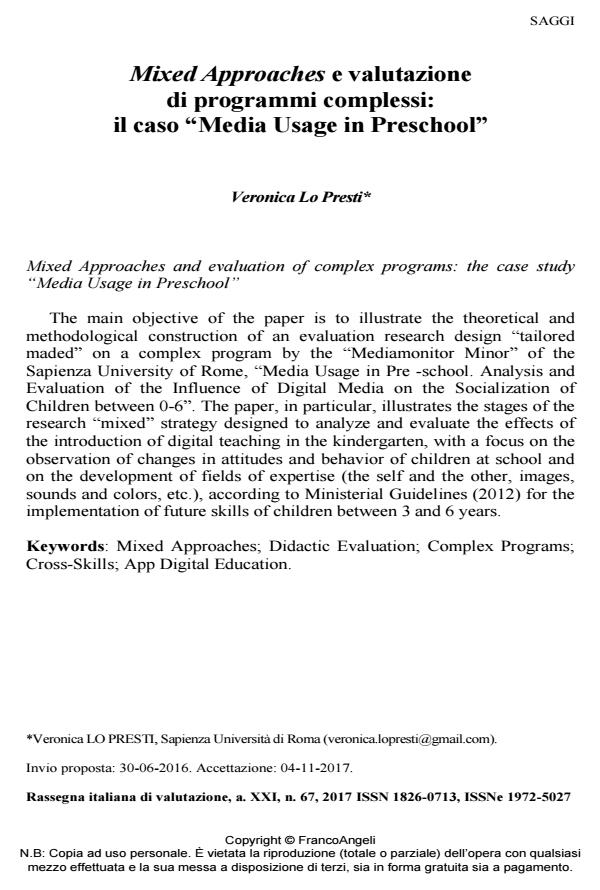Mixed Approaches and evaluation of complex programs: the case study "Media Usage in Preschool"
Journal title RIV Rassegna Italiana di Valutazione
Author/s Veronica Lo Presti
Publishing Year 2018 Issue 2017/67
Language Italian Pages 18 P. 45-62 File size 505 KB
DOI 10.3280/RIV2017-067004
DOI is like a bar code for intellectual property: to have more infomation
click here
Below, you can see the article first page
If you want to buy this article in PDF format, you can do it, following the instructions to buy download credits

FrancoAngeli is member of Publishers International Linking Association, Inc (PILA), a not-for-profit association which run the CrossRef service enabling links to and from online scholarly content.
The main objective of the paper is to illustrate the theoretical and methodological construction of an evaluation research design "tailored maded" on a complex program by the "Mediamonitor Minor" of the Sapienza University of Rome, "Media Usage in Pre -school. Analysis and Evaluation of the Influence of Digital Media on the Socialization of Children between 0-6". The paper, in particular, illustrates the stages of the research "mixed" strategy designed to analyze and evaluate the effects of the introduction of digital teaching in the kindergarten, with a focus on the observation of changes in attitudes and behavior of children at school and on the development of fields of expertise (the self and the other, images, sounds and colors, etc.), according to Ministerial Guidelines (2012) for the implementation of future skills of children between 3 and 6 years.
Keywords: Mixed Approaches; Didactic Evaluation; Complex Programs; Cross-Skills; App Digital Education.
Veronica Lo Presti, Mixed Approaches e valutazione di programmi complessi: il caso "Media Usage in Preschool" in "RIV Rassegna Italiana di Valutazione" 67/2017, pp 45-62, DOI: 10.3280/RIV2017-067004